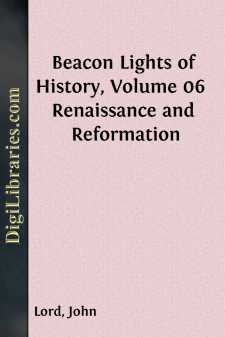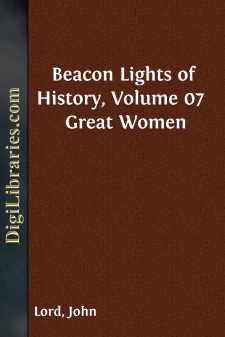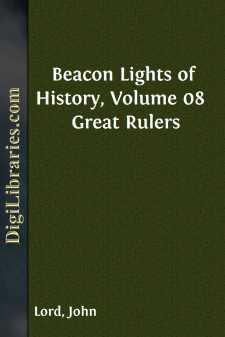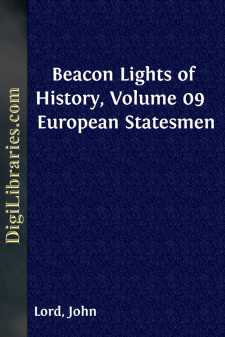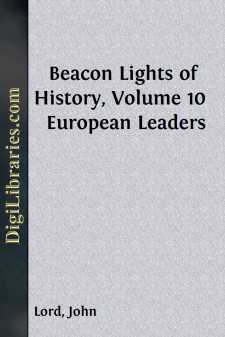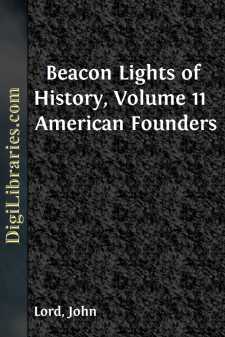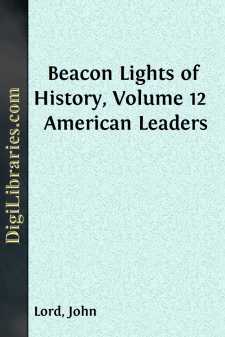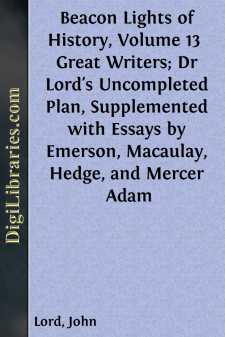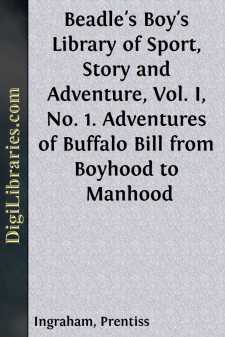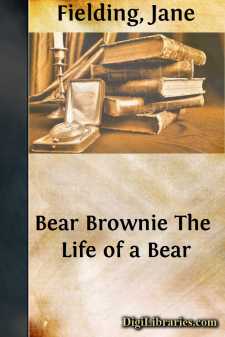Categories
- Antiques & Collectibles 13
- Architecture 36
- Art 48
- Bibles 22
- Biography & Autobiography 813
- Body, Mind & Spirit 142
- Business & Economics 28
- Children's Books 15
- Children's Fiction 12
- Computers 4
- Cooking 94
- Crafts & Hobbies 4
- Drama 346
- Education 46
- Family & Relationships 57
- Fiction 11829
- Games 19
- Gardening 17
- Health & Fitness 34
- History 1377
- House & Home 1
- Humor 147
- Juvenile Fiction 1873
- Juvenile Nonfiction 202
- Language Arts & Disciplines 88
- Law 16
- Literary Collections 686
- Literary Criticism 179
- Mathematics 13
- Medical 41
- Music 40
- Nature 179
- Non-Classifiable 1768
- Performing Arts 7
- Periodicals 1453
- Philosophy 64
- Photography 2
- Poetry 896
- Political Science 203
- Psychology 42
- Reference 154
- Religion 513
- Science 126
- Self-Help 84
- Social Science 81
- Sports & Recreation 34
- Study Aids 3
- Technology & Engineering 59
- Transportation 23
- Travel 463
- True Crime 29
Sort by:
by:
John Lord
MICHAEL ANGELO. A.D. 1475-1564. THE REVIVAL OF ART. Michael Angelo Buonarroti--one of the Great Lights of the new civilization--may stand as the most fitting representative of reviving art in Europe; also as an illustrious example of those virtues which dignify intellectual pre-eminence. He was superior, in all that is sterling and grand in character, to any man of his age,--certainly in Italy;...
more...
by:
John Lord
BEACON LIGHTS OF HISTORY HÉLOÏSE. * * * * * A.D. 1101-1164. LOVE. When Adam and Eve were expelled from Paradise, they yet found one flower, wherever they wandered, blooming in perpetual beauty. This flower represents a great certitude, without which few would be happy,—subtile, mysterious, inexplicable,—a great boon recognized alike by poets and moralists, Pagan and Christian; yea, identified not...
more...
by:
John Lord
CARDINAL DE RICHELIEU. A. D. 1585-1642. ABSOLUTISM. Cardinal de Richelieu is an illustration of what can be done for the prosperity and elevation of a country by a man whom we personally abhor, and whose character is stained by glaring defects and vices. If there was a statesman in French history who was pre-eminently unscrupulous, selfish, tyrannical, and cruel, that statesman was the able and wily...
more...
by:
John Lord
CHATEAUBRIAND. 1768-1848. THE RESTORATION AND FALL OF THE BOURBONS. In this lecture I wish to treat of the restoration of the Bourbons, and of the counter-revolution in France. On the fall of Napoleon, the Prussian king and the Austrian emperor, under the predominating influence of Metternich, in restoring the Bourbons were averse to constitutional checks. They wanted nothing less than absolute...
more...
by:
John Lord
LOUIS NAPOLEON. 1808-1873. THE SECOND EMPIRE. Prince Louis Napoleon, or, as he afterward became, Emperor Napoleon III., is too important a personage to be omitted in the sketch of European history during the nineteenth century. It is not yet time to form a true estimate of his character and deeds, since no impartial biographies of him have yet appeared, and since he died less than thirty years ago. The...
more...
by:
John Lord
THE AMERICAN CONSTITUTION. There is one man in the political history of the United States whom Daniel Webster regarded as his intellectual superior. And this man was Alexander Hamilton; not so great a lawyer or orator as Webster, not so broad and experienced a statesman, but a more original genius, who gave shape to existing political institutions. And he rendered transcendent services at a great...
more...
by:
John Lord
1782-1850. THE SLAVERY QUESTION. The extraordinary abilities of John C. Calhoun, the great influence he exerted as the representative of Southern interests in the National Legislature, and especially his connection with the Slavery Question, make it necessary to include him among the statesmen who, for evil or good, have powerfully affected the destinies of the United States. He is a great historical...
more...
by:
John Lord
1795-1881. CRITICISM AND BIOGRAPHY. The now famous biography of Thomas Carlyle, by Mr. Froude, shed a new light on the eccentric Scotch essayist, and in some respects changed the impressions produced by his own "Reminiscences" and the Letters of his wife. It is with the aid of those two brilliant and interesting volumes on Carlyle's "Earlier Life" and "Life in London,"...
more...
CHAPTER I. PROLOGUE. That Truth is, by far, stranger than Fiction, the lessons of our daily lives teach us who dwell in the marts of civilization, and therefore we cannot wonder that those who live in scenes where the rifle, revolver and knife are in constant use, to protect and take life, can strange tales tell of thrilling perils met and subdued, and romantic incidents occurring that are far removed...
more...
by:
Jane Fielding
CHAPTER I. HOW I TUMBLED DOWNHILL. It is not easy for one to believe that he ever was a cub. Of course, I know that I was, and as it was only nine years ago I ought to remember it fairly clearly. It is not so much a mere matter of size, although it is doubtful if any young bear realizes how small he is. My father and mother seemed enormous to me, but, on the other hand, my sister was smaller than I,...
more...


